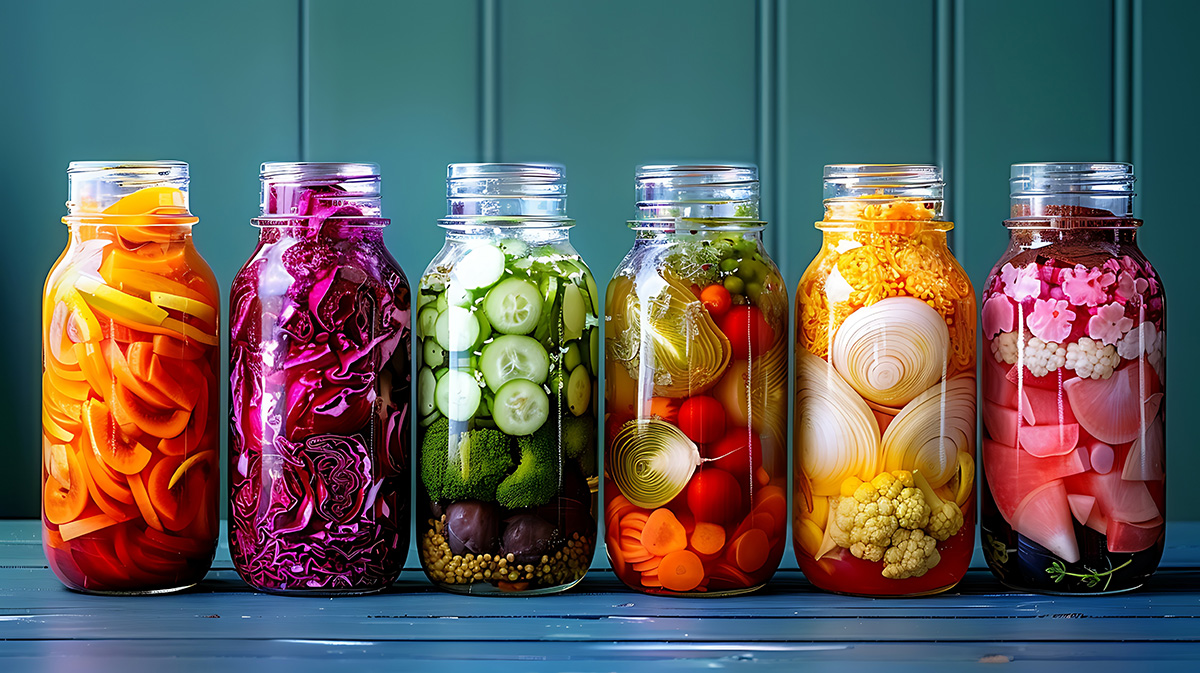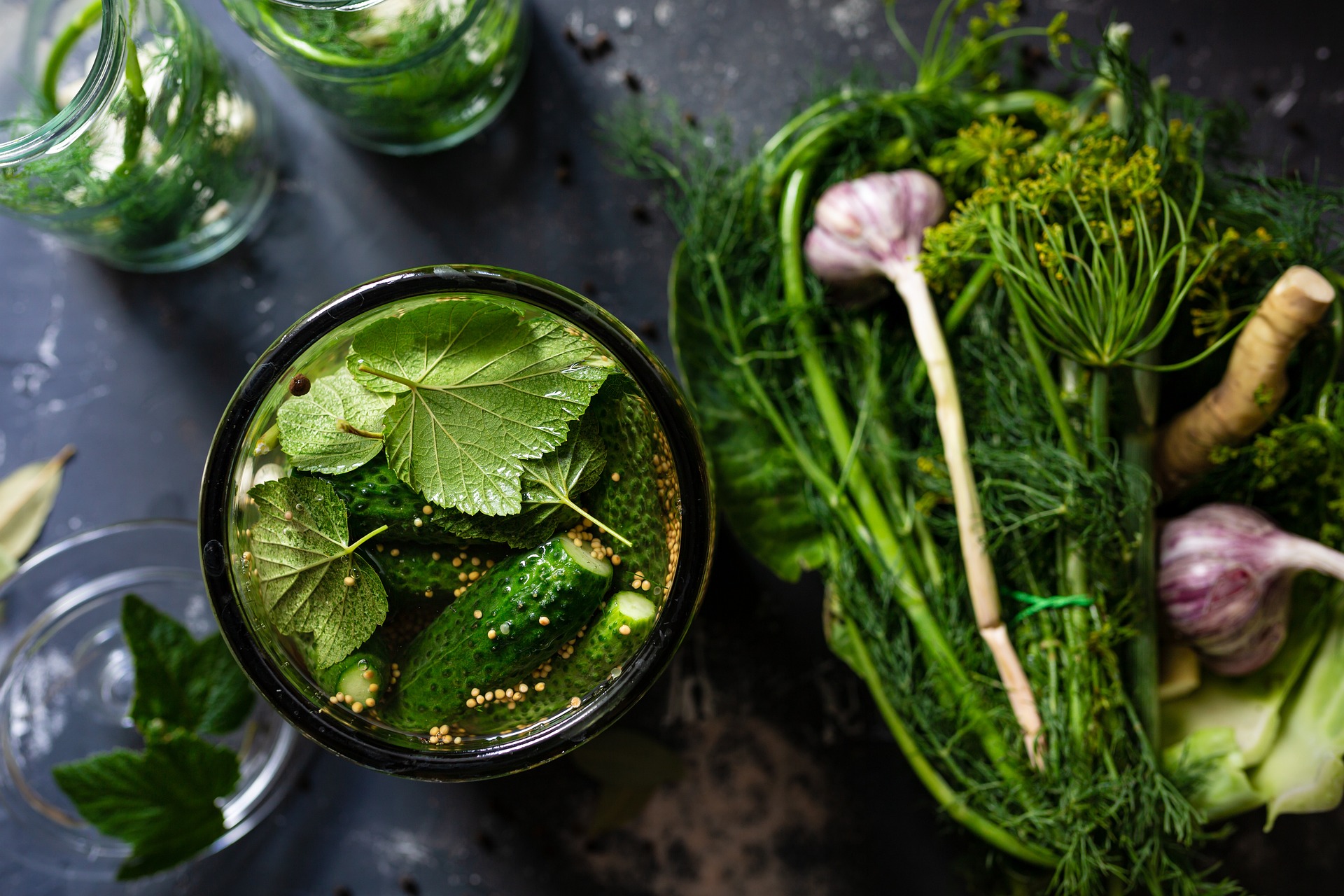You’ve probably heard that fermented foods are good for you, but why? They actually seem a little aggressive or strong to a system we are always trying to keep in harmony or equilibrium. All that sour, that tang, that aliveness! And that’s the key word, fermented foods are alive!
Harvard Health says “the biggest benefit of fermented foods comes from probiotics and that can really add depth to your diet.”
What’s the difference between pickled and fermented?

You may think that ‘pickles’ or things that are pickled are fermented foods. This is not true.
The process of pickling is an ancient method of preserving vegetables by immersing them in boiling vinegar. The earliest pickling actually goes back to 4000 BC in India. The hot liquid kills any microorganism and enzymes, which unfortunately includes probiotics. And the acetic acid in the vinegar is actually what turns the veggies sour.
Fermentation on the other hand is completely different and has been in practice for 6000 years, and the process has not changed very much in all of those years. The process of fermentation starts with chopped vegetables, placed in a glass jar and filled with a light, salty brine, it’s usually about 2-3% salt. You must keep the vegetables submerged, anything that is not submerged can actually grow mold, so this is a pretty important part to prevent spoilage. Within a few days lactic acid bacteria turns the sugar in the vegetables into lactic acid and a bunch of other nutritious compounds. The more lactic acid bacteria, the more spoilage organisms are destroyed. Within a very short time the acid buildup cleanses the fermented mixture of all unhealthy organisms. The lactic acid bacteria produces B vitamins, and an entire spectrum of probiotic organisms, this is the key. That lactic acid bacteria are the probiotics that colonize the gut and create those real health benefits, including strengthening, and managing our immune system.
So what will it be? Pickling or fermenting? Well, both are tasty but with fermenting you get more health benefits. So lean into fermented foods like sauerkraut, kimchi, kombucha, miso, apple cider vinegar and other things like yogurt, natto (Japanese fermented soybeans) kefir, cheese, sourdough and even wine. The latter is a bit of a different process, but are still considered fermented foods.
What are some fermented food benefits?

- Stanford researchers found that eating a diet high in fermented foods increased the diversity of gut microbes. And in a research study they found that four different types of immune cells showed less activation which are linked to rheumatoid arthritis, type two diabetes and chronic stress.
- According to some new studies fermented foods may be associated with improved cognitive performance, specifically due to their ability to influence the microbiota-gut-brain axis. Researchers are saying more and more how the gut or GI system is directly linked to the brain.
- Fermented foods keep the intestinal barrier healthy and strong, preventing bacteria and toxins from entering circulation and reducing the chance of leaky gut syndrome.
Are pickled foods good for anything?
Sure! If you’re looking for ways to balance your liver, then both are great choices! In Chinese medicine the liver loves the taste of sour so fermented or pickled foods are just perfect. The palate loves variety and we tend have less sour foods overall.
In conclusion, fermented foods are a wonderful and healthy addition to your diet that add depth, variety and healing benefits to your gastric microbiome.


